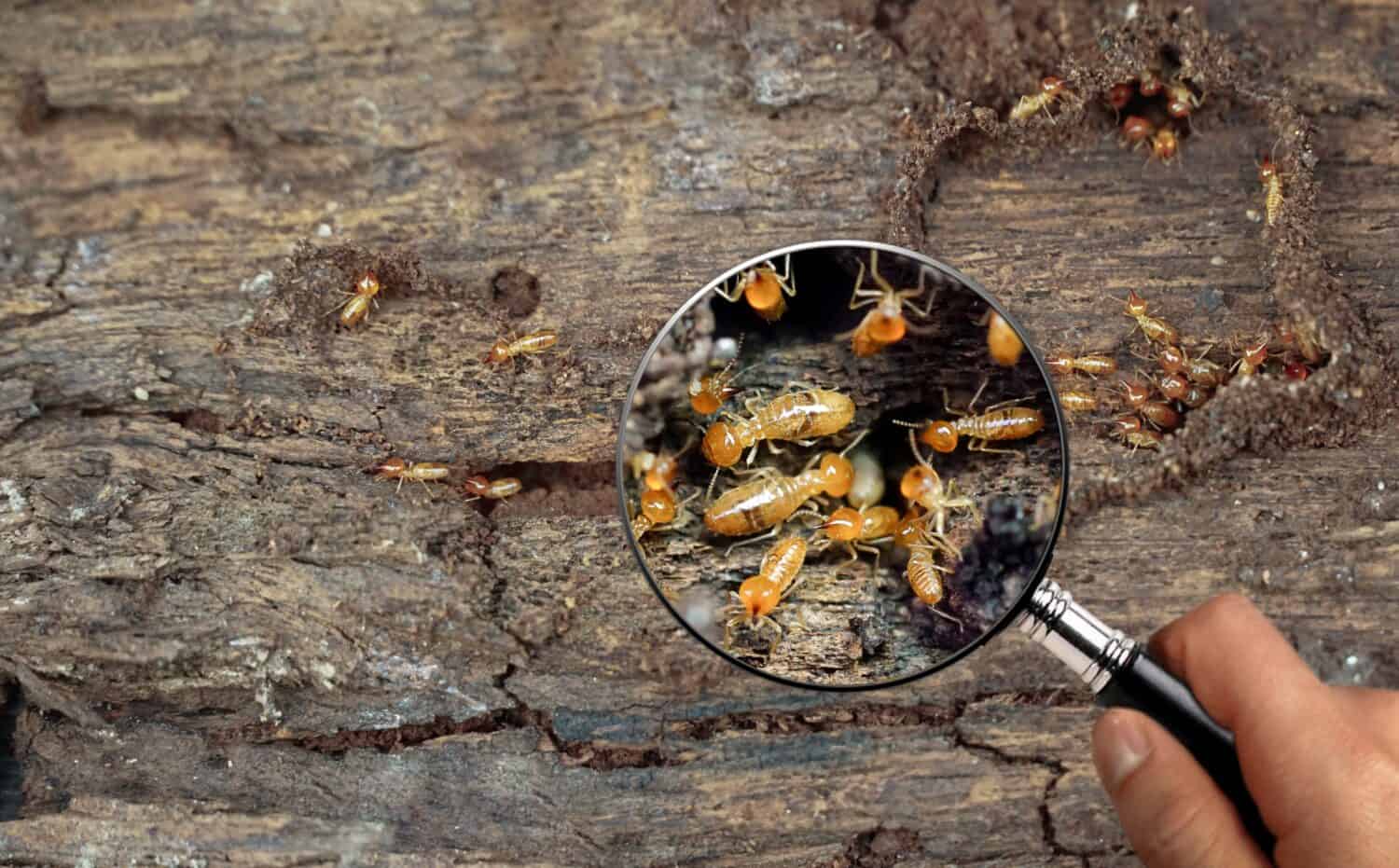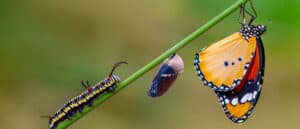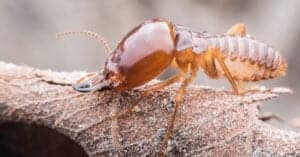Dealing with a pest insect problem can be a maddening experience for many. However, some of these creatures can be far more dangerous than others. While mosquitos and fruit flies are nuisances, termites can destroy homes from the inside out. If left unchecked, these insects can cause thousands of dollars worth of damage. Because of this, it’s important to make your house as inhospitable as possible so that they won’t attempt to move in. Many of us know pesticides can be harmful, and weather sealing your house can be expensive. A wonderful, low-cost alternative to these methods is to fill your yard and garden with plants that termites are sensitive to. Let’s explore seven different plants that effectively repel termites and keep them far away from your home.
1. Mint
Peppermint essential oil mixed with vinegar and water is a wonderful natural insect repellent.
©Tatevosian Yana/Shutterstock.com
Many insects are sensitive to strongly scented herbs, and mint is one of the best choices among them. Mint is a common component in a variety of natural insect repellents, and people have been using peppermint essential oil to keep pests away for years. However, you can also grow this herb directly in your garden to garner similar effects. In addition to being a powerful deterrent, mint also offers several health benefits such as improved digestion and increased relaxation. This makes this plant a win-win for homeowners dealing with termite problems.
2. Onion
Even if you dislike onions, planting them in your garden will keep your other plants pest-free.
©Dominique James/Shutterstock.com
Onions can be somewhat controversial, as many people either love or hate this vegetable. However you feel, one thing is undeniable: the scent of onions will keep a variety of pest insects at bay. According to a journal authored by Dorrigiv et al., “Onion has plentiful chemical compounds such as allicin, quercetin, fisetin, other sulphurous compounds: diallyl disulphide and diallyl trisulphide.” These compounds are overpowering for many insects, especially ones as small as termites. Growing onions in your garden will serve as a natural repellent and it will also help keep your pantry full!
3. Garlic
After planting garlic, gardeners may need to wait up to nine months for it to be ready for harvest.
©IURII BUKHTA/iStock via Getty Images
Like onions, garlic contains the insect-repellent allicin, which has an even greater amount of this compound than onions. Many insects dislike the smell of garlic. In addition to termites, you’ll be able to repel mosquitos, caterpillars, mites, aphids, and flies. The best way to use garlic is to smash the cloves or blend them into a puree with water and distribute the mixture throughout your yard.
4. Lavender
Mosquitos, moths, and ticks typically stay far away from lavender as well.
©Juan Carlos Munoz/Shutterstock.com
Lavender is famous for its ability to soothe and relax those who inhale its fragrance. However, you’ll be happy to learn that this herb is also useful for repelling pests! This plant is sure to bring you peace in a multitude of ways as you’ll be able to unwind knowing that it’s helping repel termites from your home.
5. Catnip

Catnip is also sometimes referred to as catmint or catwort.
©MNStudio/Shutterstock.com
Are you a cat owner? If so, planting catnip in your garden will be a huge win-win! This herb is universally hated by several pest insects, and termites are no exception. According to Science News Explores, “The active component of catnip (Nepeta cataria) repels insects. It does this by triggering a chemical receptor that can spur sensations such as pain or itch.” In addition to serving as an insect repellent, catnip is also aesthetically pleasing and easy to cultivate.
6. Vetiver Grass
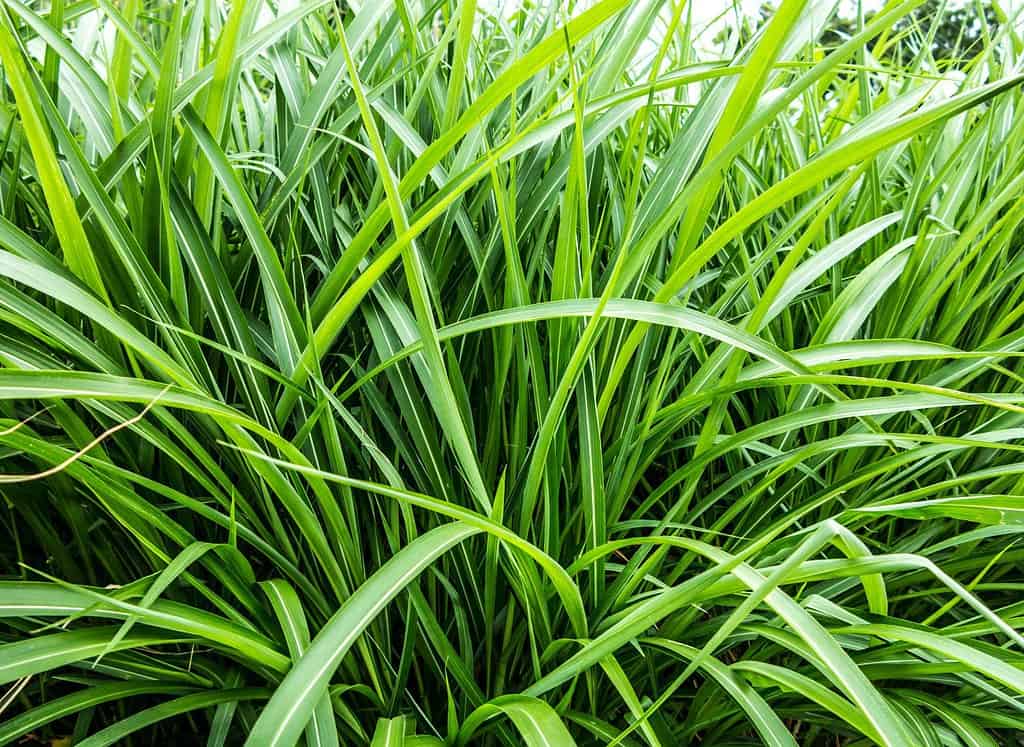
The scientific name of vetiver grass is
Chrysopogon zizanioides.
©Zulashai/Shutterstock.com
While some of the plants we’ve discussed today are universal insect repellents, vetiver grass is particularly effective at repelling termites. Researchers concluded that this is due to nootkatone, which is a compound found within this plant. Homeowners may want to line the perimeter of their houses with this grass to prevent termites from coming too close.
7. Basil
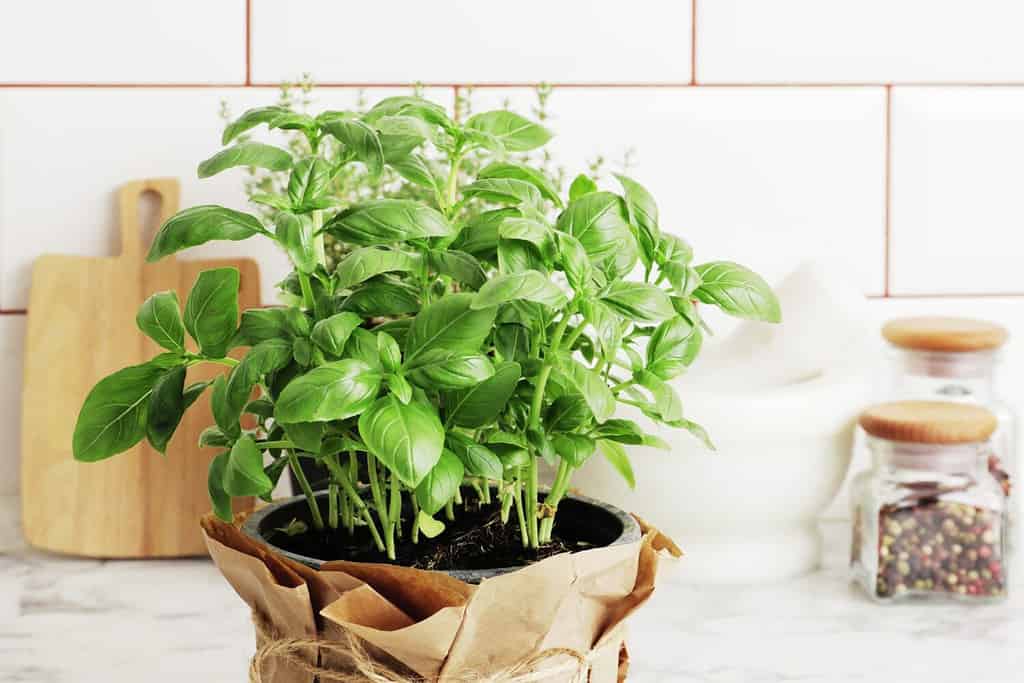
Even amateur gardeners will find that growing basil is very easy.
©PandaStudio/Shutterstock.com
Although many people know basil as a popular culinary ingredient, it’s also great for keeping termites at bay. Basil grows well both indoors and outdoors, so keeping a few plants scattered throughout your home will help discourage termites from coming inside. Despite this, basil is beloved by aphids, so planting this may invite these insects to your yard instead.
Other Ways to Repel Termites
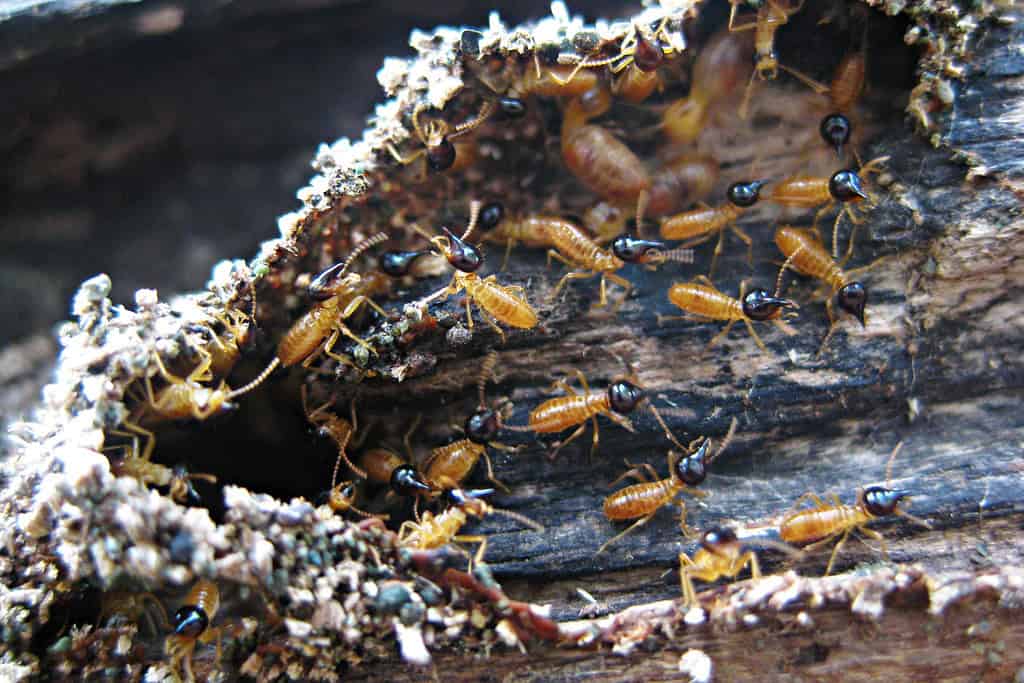
Shockingly, certain queen termites can live into their twenties.
In addition to incorporating plants that termites hate into your garden, homeowners can also plant herbs and flowers that attract natural predators of termites. Dill, yarrow, fennel, and sunflowers are all plants to consider. Termites are predated by a variety of animals, such as frogs, lizards, birds, spiders, dragonflies, mantises, and ants. Keeping these animals around is an excellent way to stifle termite populations. In fact, many of these animals will also help keep different pest insect populations down as well. Homeowners can also weather seal their homes to close up any cracks that termites may enter through. Pesticides should only be used as a last resort if no other methods are working.
Thank you for reading! Have some feedback for us? Contact the AZ Animals editorial team.

